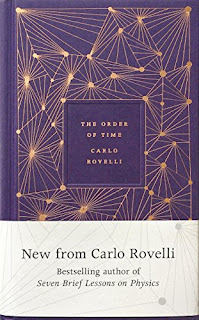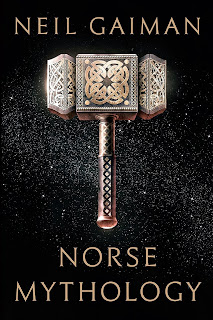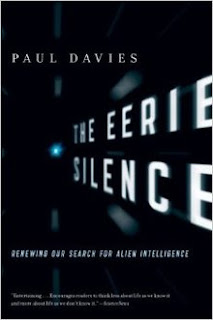Time(less) discussions
The Order of Time
Carlo RovelliI understand what this book stems from. Carlo Rovelli is one of the foremost theoretical physicists of our time, pun intended. As a co-creator of the loop quantum gravity theory, his work comes close to giving us a complete, unified understanding of the physical world. Being privy to this, his human intellect compels him to share this vision with others. If you have an understanding that has given you peace from the daily suffering and ignorance, but you see others around you continue to suffer, metaphorically or literally, you want to shout the truth to them from the rooftops. This book, I suspect, is his shouting. Luckily, Rovelli is one of the not too many, who has writing and explanatory powers to complement his command of formulae.
Two thirds of the book are therefore dedicated to walking the reader through current frontiers of physics, including loop quantum gravity, with a focus on time. Rovelli first proceeds to dismantle the concept of time into constituent sub-times, such as clock time, causal time, time perception etc. He then focuses on the physics of time and systematically demonstrates, that in fundamental physics, time does not exist. It's all based on good evidence and mostly explained in layman's terms. If the last time you read anything to do with physics was in high school, some bits might require you reading them over a few times, but mostly the argument in the book is easy to follow. Time does not exist. Fundamental processes, theoretical and actual, are time-symmetric.
Coincidentally just yesterday I read from the New Scientist of an experiment, where researchers programmed conventional and quantum computers to model certain processes in both time directions. They found, that while conventional computers required much more processing power to make calculations when the arrow of time was reversed, quantum computers did not. To bring a simple example - it does not require much memory or processor power to calculate what happens, when a glass falls from the table onto a stone floor beneath. However, in reverse time direction, it takes silicon computers much more memory and processing to calculate, looking at hundreds of pieces of glass scattered on the stone floor, what the original glass on the table might have looked like. Curiously, quantum computers experience no difference in required processing power. It is exactly as easy for a quantum computer to calculate how the glass breaks as it is to calculate, how the broken pieces fit back together.
In fundamental physics, processes and formulae are time-symmetric. Time as a variable does not exist and Rovelli walks us along this path of proof in three or four short chapters. While essential to the argument that is to follow, this first part of the book does not contribute new or original material. The described theories are known, the experiments often reiterated. Of course, having a creator of loop quantum gravity explain loop quantum gravity is definitely worth a read. Should the theory receive more experimental or observational support in the years to come, this is a part of the book that I would likely re-read. And in any case, it is useful to occasionally be reminded about the absence of absolute time. Again, pun intended.
Having dismantled time as a physical phenomenon in the first, Rovelli now rebuilds time in the second part of the book. By the way, these parts are not dreamt up by me, the author himself clearly separates the book into parts and explains as much. Time is not rebuilt as a component of the universe but as part of the subjective human experience. He is not saying time is an illusion, but that it is real only from our particular viewpoint. First, however, he carefully explains the much confused notion of entropy and the laws of thermodynamics. Also, he takes time to overturn some myths about the ever increasing entropy. Though even after this, I'm still not entirely convinced, that biological life does not constitute an exception to that rule.
Having done all that, he advances his original contribution - the idea of thermal time. Essentially, what he says is, that as creatures of incomplete knowledge and perception, time is real for us as a sequence of events of increasing entropy, but still unreal as a universal variable. By incomplete knowledge and perception, he means that we see and know about a cat, not the carbon, hydrogen, oxygen etc atoms or parts thereof, that constitute the cat. Viewed from our level of abstraction, we perceive time, where there actually is none. The New Scientist article mentioned above ended by quoting the authors of the paper it referenced: "We see time, because we have no direct experience of the quantum world. Were we to have access to quantum perception and quantum thought, we might see the world as timeless."
Rovelli takes time to gradually explain and illustrate his idea of thermal time in several chapters and makes, in my opinion, a convincing case. But even if a reader does not agree, the argument is nevertheless interesting to follow as food for thought.
The final part of the book, comprising of the introduction and the final chapters, is Rovelli's own philosophical meanderings. Again, this in no way reflects negatively on their worth or value. Discovering the personal relationship, that an eminent quantum physicist has with the time(less)ness of our existence, is a privilege and an honour. In fact, his expression is more lucid and substantantial than many a philosophers'. So much so, that I will end this review of his small book, well worth reading, with his words, not mine: "Job died when he was ‘full of days’. It’s a wonderful expression. I, too, would like to arrive at the point of feeling ‘full of days’, and to close with a smile the brief circle that is our life. I can still take pleasure in it, yes; still enjoy the moon reflected on the sea, the kisses of the woman I love, her presence that gives meaning to everything; still savour those Sunday afternoons at home in winter, lying on the sofa filling pages with symbols and formulae, dreaming of capturing another small secret from among the thousands that still surround us … I like to look forward to still tasting from this golden chalice, to life that is teeming, both tender and hostile, clear and inscrutable, unexpected … But I have already drunk deep of the bittersweet contents of this chalice, and if an angel were to come for me right now, saying, ‘Carlo, it’s time,’ I would not ask to be left even long enough to finish this sentence. I would just smile up at him and follow."




Comments
Post a Comment